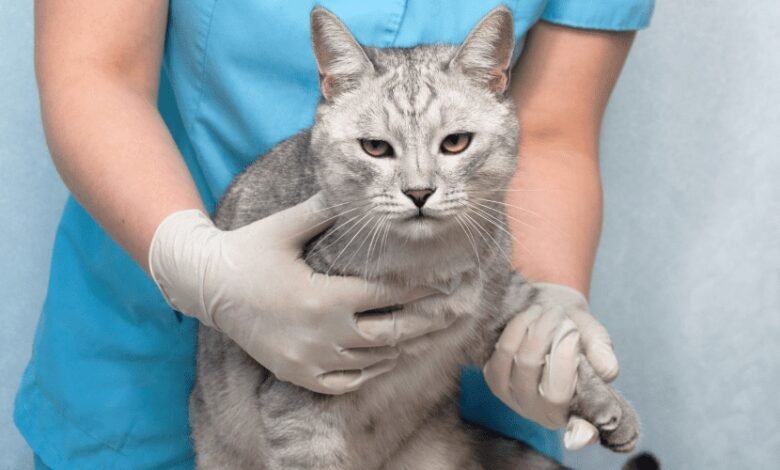
What are some common cat illnesses & symptoms?
As a cat owner, here are illnesses you need to be aware of. Be ready to take your cat to the vet if you need to, especially since cats tend to hide when they are sick. Here are the signs of common illnesses in cats.
Upper Respiratory Infections
Viruses and bacteria can get into your cat’s throat, nose, and sinuses, which are all part of the upper respiratory tract. Feline herpesvirus and feline calicivirus are often passed around in homes with more than one cat or in shelters. Cats can get them by doing something as simple as sharing a food or water bowl.
In the same way, or by sneezing or coughing, they can give this virus to other cats. It can also be spread when a pet is being groomed if the tools aren’t clean enough.
Symptoms include:
- Gagging, drooling
- Runny nose or clear/colored nasal discharge
- Fever
- Cough
- Sneezing
- Decreased or lost appetite
- Congestion
Diabetes
Diabetes mellitus happens when a cat doesn’t make enough insulin to keep blood sugar or glucose levels in balance.
If it isn’t treated, it can lead to serious symptoms like:
- Thirst
- Increased urination
- Increased appetite or loss of appetite
- Vomiting
- Dehydration
- Motor function problems
- Coma
- Death
If a cat’s diabetes isn’t well managed, it can shorten its life and cause other health problems, like nerve disorders. It could also lead to very serious emergencies. The goal of the treatment of cat illnesses, which might include insulin injections, is to keep this condition under control.
Cancer
Cancer is caused by cells that grow out of control, and it can affect many organs and cells in a cat’s body. The disease starts to grow inside a cell and then attaches to tissue below the skin. It can then spread to other parts of the body.
Feline Leukemia Virus, which cats can get a shot for, is a common cause of cancer. If your vet finds cancer early on during a physical exam, he or she may be able to treat it with chemotherapy, surgery, or another method.
Some of the signs are:
- Lumps or bumps that change in size or shape
- Sores that do not heal
- The odor from the mouth
- Unexplained bleeding or discharge
- Marked increase or decrease in appetite
- Chronic weight loss
- Difficulty urinating or defecating
Read More: Pneumonia in Cats – Causes, Symptoms & Treatment
What should I do if my cat is ill?
If your cat is sick and has any of the above signs, you need to get them to the vet right away so it can get a proper diagnosis. At Best Friends Animal Hospital, we have an in-house lab that helps our veterinarians figure out what’s wrong with your cat and come up with a treatment plan.








One Comment